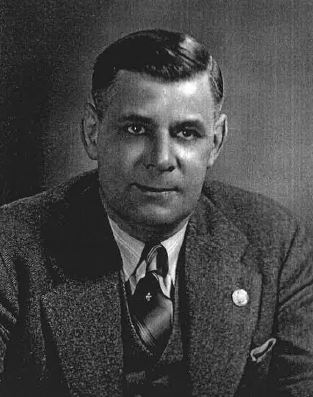By Dan McCaffery for the Sarnia Observer
If Sarnia Sting fans thought the club’s home rink was inadequate, they can thank their lucky stars that Carlyle W. Hipple was in the Mayor’s chair half a century ago.
That’s because under his guidance the City began planning for construction of the Sarnia Arena. And without the venerable old barn, there would not have been a spectator arena of any consequence in the Community.
Hipple, who was born in Sarnia in 1898, served overseas with the Canadian Artillery during the First World War. When peace came he got a job at Imperial Oil, married Laurabelle Wilson and had one son.
He was elected our 58th Chief Magistrate in 1943 and was re-elected twice, becoming the first Mayor in 70 years to serve more than two years.
Council was handicapped during much of his time in office by a scarcity of building materials. With the Second World War in full swing, there weren’t enough materials available for sewer construction or many other important municipal projects.
But that didn’t stop Hipple from planning for the future. Two years before the fighting ended, ‘he unveiled a “post-war civic improvement plan” that included construction of a 2,000-seat arena.
Mayor Hipple was, in fact, named chair of a committee charged with drawing up plans for a proposed “War Memorial Civic Centre”.
He also appointed a City Council committee to investigate the feasibility of the project.
Critics said it would be too expensive but the Mayor predicted private citizens would pick up much of the tab. “I have every reason to believe that we have enough patriotic citizens to pay for the whole works”, he said.
The opening of the arena was delayed by a lack of community interest, shortage of funding and outright opposition.
But in 1948 five organizations spearheaded a campaign lead by Carl Manore.
In total, the arena cost about $250,000.00 to build. The City chipped in $10,000.00 and City residents raised the rest.
The arena finally opened in January 1949, three years after Hipple left office. As a result, his name is seldom mentioned in connection with the project.
During Hipple’s administration, Council also introduced pensions for City employees, including police officers and fire fighters.
He died on November 5, 1973, at age 75.


